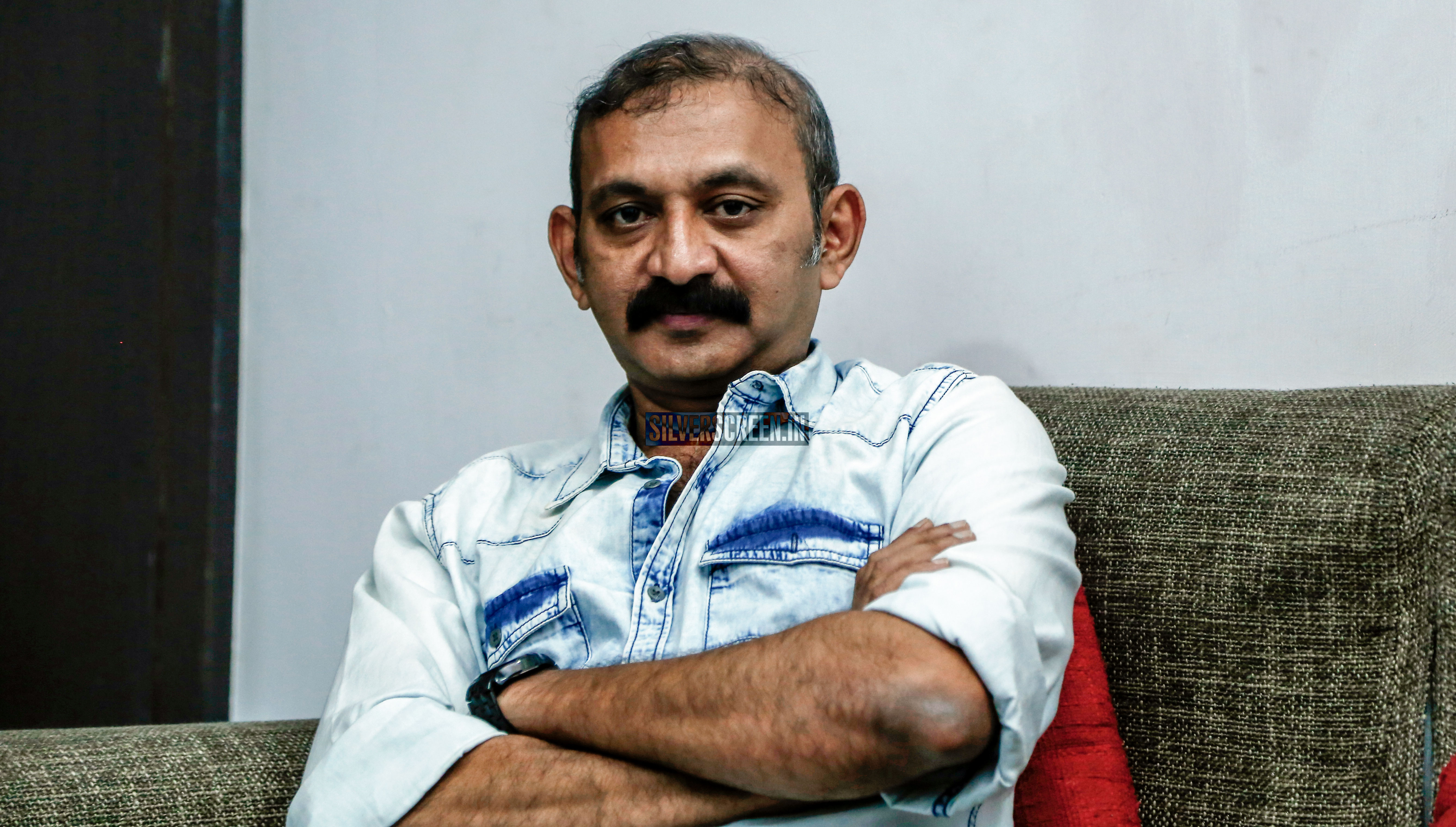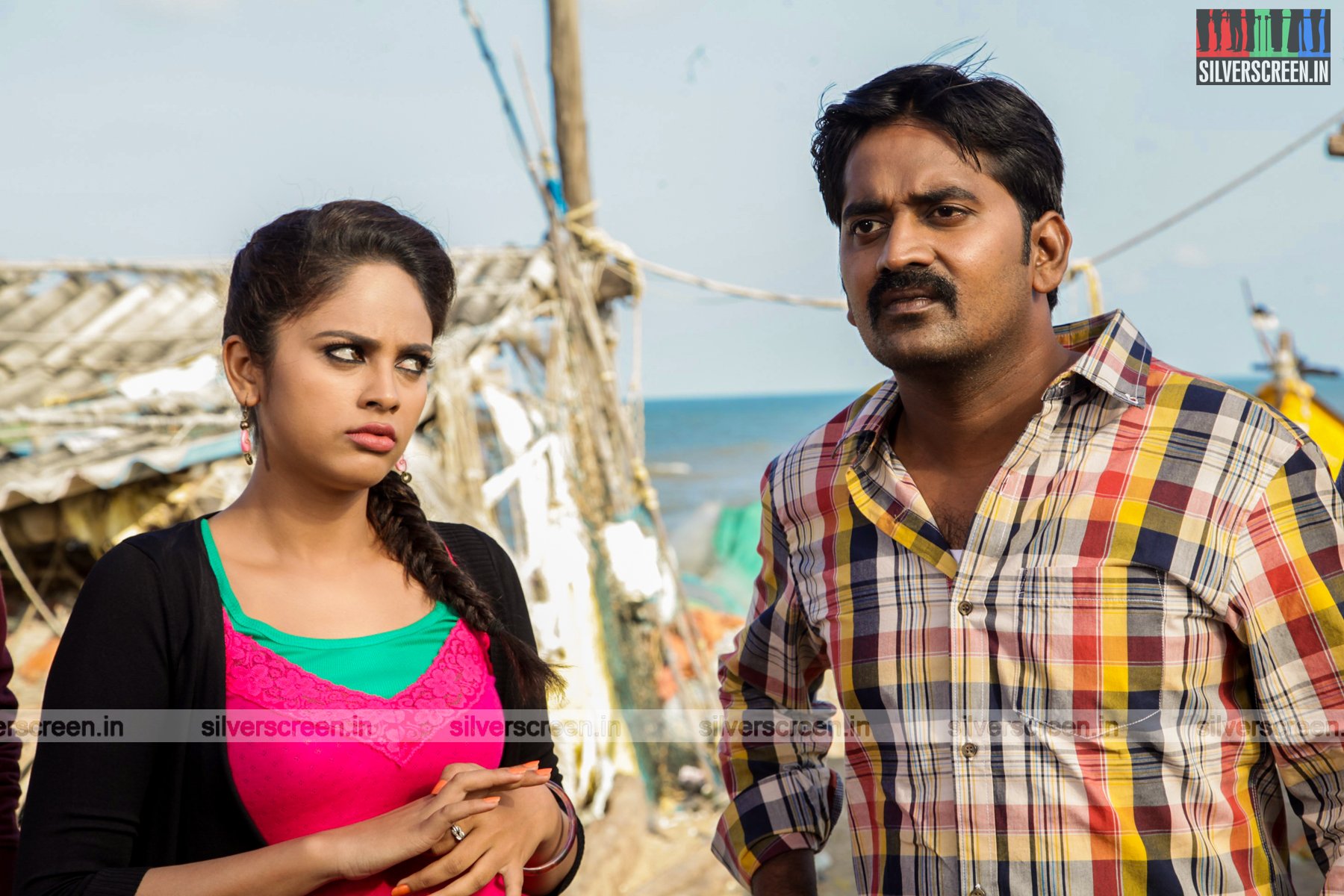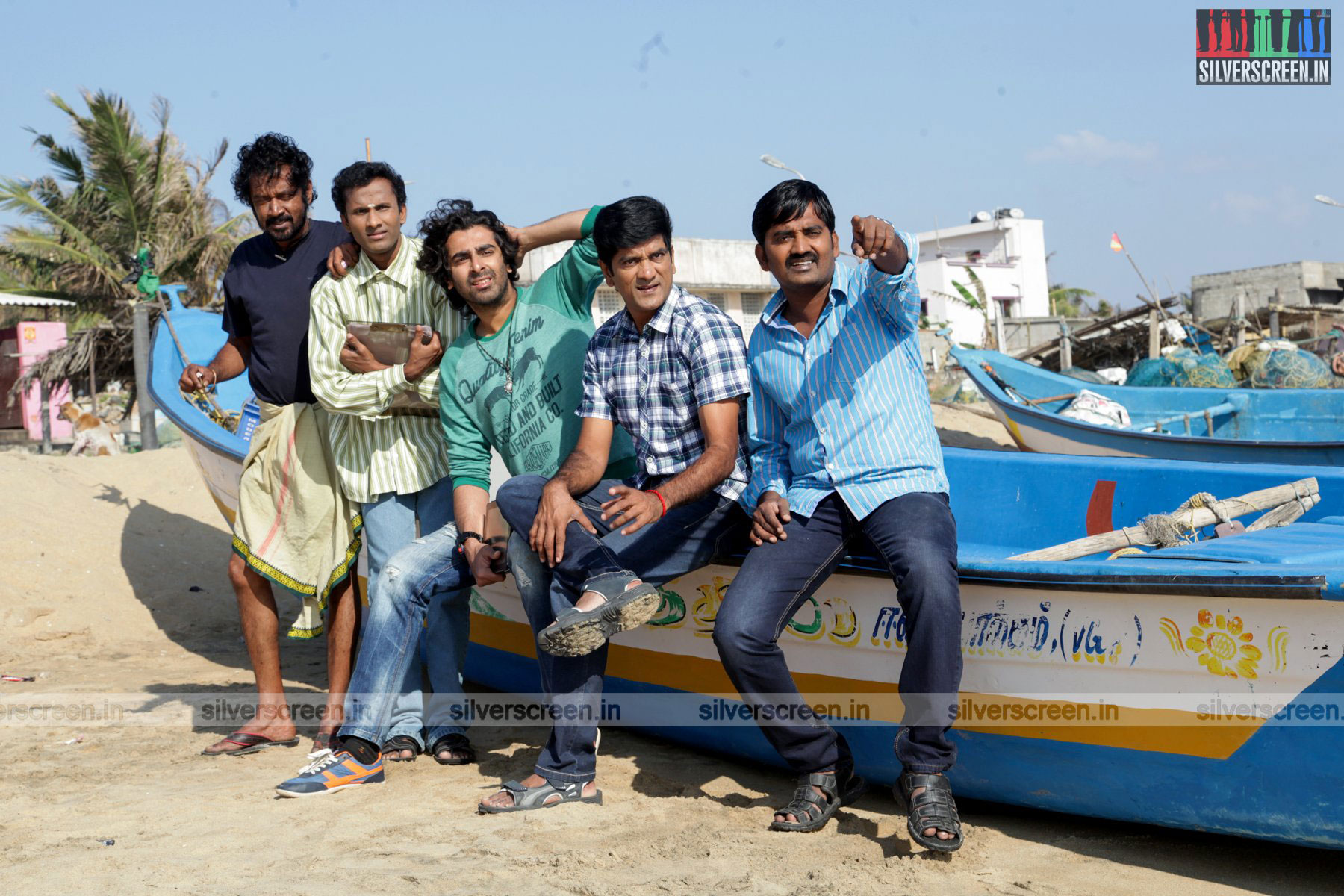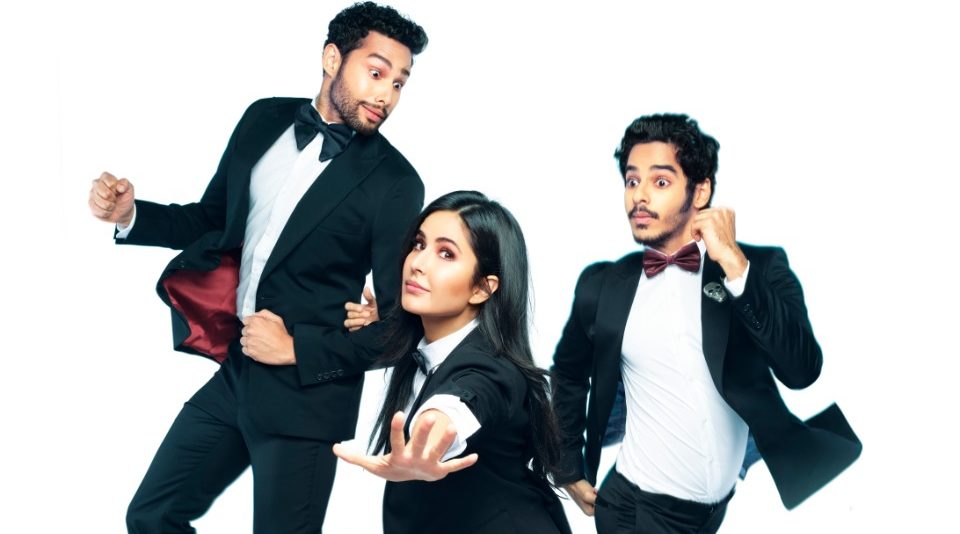In Kollywood, Radha Mohan’s films have become synonymous with the term ‘feel good’. Films like Azhagiya Theeye, Mozhi, and Abhiyum Naanum have left audiences simultaneously moist-eyed and smiling. In Payanam, a thriller about a plane hijack, he interlaced comedy with an unusually serious theme. The film was a winner. We talk to Radha Mohan today about the core concept behind his latest release Uppu Karuvadu, the real-life comic moments behind a plane hijack story, and his biggest regrets in the pursuit of his dreams.
*****
 ‘Uppu Karuvaadu’ (salted kippers) is a dish he cannot stand, and Radha Mohan has named his film after it. “The story is about an aspiring film maker and the troubles he faces. Normally, we see such stories set around Kodambakkam. But these guys choose sea-facing areas like Royapuram to make their film. There’s a popular phrase in Tamil, ‘Kaanju Karuvaada Poiten’ (loose translation: I’m exhausted and have become like a dried out fish). That’s the connection between the dish and the plot,” explains the director. The story is infused with his own experiences as a struggling film-maker.
‘Uppu Karuvaadu’ (salted kippers) is a dish he cannot stand, and Radha Mohan has named his film after it. “The story is about an aspiring film maker and the troubles he faces. Normally, we see such stories set around Kodambakkam. But these guys choose sea-facing areas like Royapuram to make their film. There’s a popular phrase in Tamil, ‘Kaanju Karuvaada Poiten’ (loose translation: I’m exhausted and have become like a dried out fish). That’s the connection between the dish and the plot,” explains the director. The story is infused with his own experiences as a struggling film-maker.
*****
In all Radha Mohan films, dialogues are a major high point. They’re sarcastic, melodramatic, happy, and sympathetic. In short, filled with emotions. “That is my style of film making: simple. Not every story needs to be told visually. Especially in my films, which have a lot of comedy, I rely on dialogues.” He doesn’t believe in having a comic track just for the heck of it, “You cannot categorise people as, X should be used for laughing, Y for crying. Every human has a range of emotions, right? Everyone has humour in them, and that is how the characters in my films are.”

Uppu Karuvaadu is sheer comedy. That much is evident from the cast alone, which boasts a host of actors skilled in the genre. From the main lead Karunakaran to MS Bhaskar, Mayilsamy, Chams, Kumaravel, ‘Doubt’ Sendhil, and ‘Daddy’ Saravanan. Radha Mohan ensured that there was plenty of input from his cast, and the freedom to improvise, even with dialogues. “I gave them the script in advance, so they could rehearse their lines with each other. Shot for shot, they were prepared.” But did he ever feel ‘too many cooks spoil the broth?’ “At times,” he agrees. “That’s my job, to make sure they don’t deviate. I am comfortable enough with my actors to tell them when their line is mokka,” he laughs.
*****
How comfortable is he with the ‘feel good’ tag? “I don’t believe that audiences brand me. But, as you said, if there’s no ‘feel good’ factor in my film, they would be disappointed. My last film Gauravam was about honor killing. The audience felt disappointed because there wasn’t much humour in the film. I have used a number comic variations in each of my films, and humour is my stronghold. There is an element of humour in all my films.”
This is true even for Payanam, which was the first South Indian film to depict a plane hijack story. Unlike the grim and action-packed Hollywood hijack films, Payanam has a healthy dose of comedy. “The comedy won the film praise, but was also a point of criticism for many. They said the comedy was irrelevant to the plot. But that’s how I wanted this film to be. I did not want the film to be dark and grim. What inspired me the most was Captain Devi Sharan’s novel Flight into Fear, about the hijacking of the Delhi-Kathmandu flight in 1999. Captain Devi Sharan, the pilot of the hijacked plane IC 814, writes about what happened during the week-long hijack. And it’s downright amusing.
“The hostages were scared for two days at most. Then boredom got the better of them, and the terrorists who had hijacked the plane. They started to play games, and tell each other jokes to keep themselves engaged. The character of the mimicry artiste in Payanam was based on an actual person who was in that flight. After a few impersonations, he even mimicked one of the hijackers, who became angry and hit him. This leads to unrest among the other passengers, and later the hijacker apologises. Such anecdotes sound fictional, but that is what happened. And I wanted to show that in the film.”
He adds reflectively, “But it was the comedy sequence between the movie star and his fan that really elevated the film’s humour.” The situational comedy sequence showed the initial excitement of a fan (Chams), who is delighted to find himself seated next to his matinee idol (Babloo Prithvi). As he realises that heroes in films aren’t necessarily heroes in real life, the disappointment leads to several funny exchanges between the two. When I quiz him on whether the actor’s character was inspired from anyone in real life, the director laughs and says, “Haven’t we all seen the kind?”
*****
With the exception of Uppu Karuvaadu, all his films have been produced by Prakash Raj. Ask him about Prakash Raj, and Radha Mohan says, “It is a beautiful friendship. I knew him well before Azhagiya Theeye. We worked together on a movie that never got released. On both personal and professional levels, we share a good equation. We are always on the same page, and that means I have a lot of creative freedom when I make films with him. We share similar thoughts on issues, and so, we’ve never had any friction between us.”
MS Bhaskar, Chams, Kumaravel, and Prakash Raj have been a constant in most of Radha Mohan’s films. “I don’t make characters for anybody. When I write, I automatically think of actors in that role. Moreover, all the actors who I’ve repeatedly cast are seasoned actors. It’s not like I’m doing them a favour.”
*****
Women in Radha Mohan’s films have always been individualistic, level headed, and sensible. No blink and miss appearances, no ‘also there’ roles. If there is a female character in the story, there is a purpose to her. Radha Mohan says, “In some films, there are often a few characters hanging around, mostly friends of the hero or heroine. They don’t have any dialogues, or have anything to do with the plot progression. They are just there. I don’t believe in having a character just for the heck of it. So you can imagine how highly I think of my heroines. First of all, I admire women who are confident. The kind that doesn’t expect any slack just because she’s a woman. And that’s how I want my female characters to be. I guess I have been influenced by the women in my life.”
*****
Recommended
At some point in Uppu Karuvadu‘s trailer, film-maker Karunakaran is told that his film has ‘hurt the sentiments’ of a particular community, and that there would be protests against its release. Here, Radha Mohan directly draws on his experiences with Gauravam. “I received many threats, letters saying they wouldn’t let my film release, and much more. That left me deeply disappointed. The truth is that people are not ready to accept films that aim at social change. It’s sad.” He adds, “We all saw what happened with Kamal Haasan, and if Kamal himself was not spared, namma laam yaaru? Creative freedom is being curbed.
“And it’s not that they are being sensitive towards what is shown in cinema. They are just exploiting the situation for personal gain. Why else are there issues with the film just before the film’s release?” I wonder whether he agrees that India has become intolerant. “I do not think India is intolerant,” he replies. “All the issues that are quoted now have been there for a while. It has become prominent because of the media exposure we have these days. When it comes to being tolerant/intolerant, people take sides according to the issue. They are biased. It’s not just India, every country has its own set of problems, and people react with intolerance.”
*****

Coming to the core concept behind Uppu Karuvaadu, Radha Mohan says that the film is about dreams and goals. And how one is forced to compromise. “On your journey to fulfil your dream, the most important thing is your integrity. Due to real-life compulsions, or for a few small-time benefits, you tend to make some compromises. And because of these compromises, even if you attain your goal, there will be a kind of emptiness; a diluted victory, if I can call it that. And this is not just restricted to film-making. This can happen to anyone who has a dream. That’s what Uppu Karuvaadu is about,” he says. “It has happened to me. As long as I was an Assistant Director, I held to my integrity. But when I became a filmmaker, and when other people and their money were involved in the film, I was forced to make many compromises. I still feel bad about them.”
*****
Radha Mohan shared one last dream with us. His dream of working on a film with two acting legends, Mohanlal and Prithviraj. “I felt lucky to have had an audience with Mohanlal. I was in awe of his charisma. What was even more enthralling was that he agreed to do the film. But then, film is ultimately business. And it hasn’t yet taken off. I hope it will, someday,” he smiles.
*****



